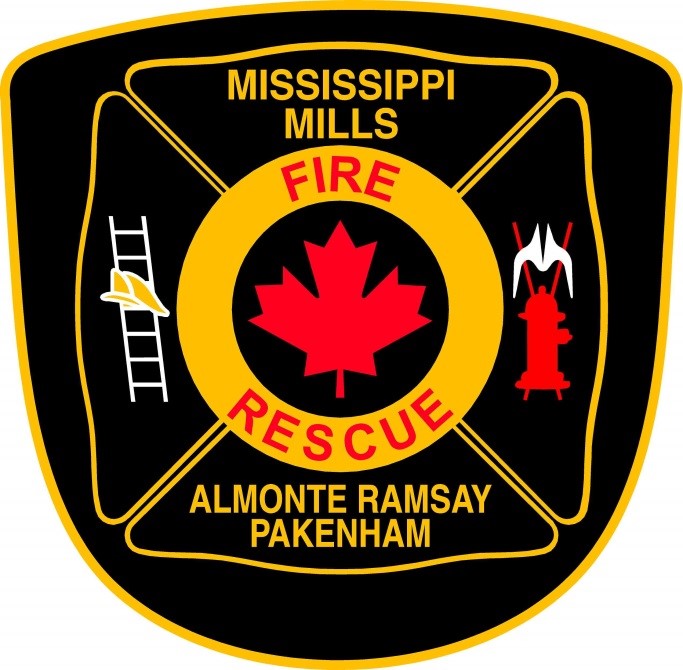EP Week 2022: Creating A Safe Home

May 5, 2022
So you’ve created an Emergency Plan, but have you considered existing hazards in your own home? Make sure you have a working smoke alarm, carbon monoxide detector, fire extinguisher and a well-stocked first aid kit.
Smoke Alarms
All residential homes are required to have working smoke alarms on every storey of their home and outside all sleeping areas. Newer homes may have strobe lights and additional alarms in the bedrooms. The Fire Code requires alarms to be maintained and in working order. Only working alarms can save lives! Here are a few safety tips:
- Removal of detectors and alarms that are not operational is an offence.
- Never replace hard-wired alarms with battery powered replacements. This will reduce the level of safety in your home and may delay early notification of a fire in other areas of your home. It is also a violation to reduce the level of alarm protection in your home!
- Maintain your alarms as specified by the manufacturer Ensure sensors are clean and alarms are installed in accordance with the manufacturer instructions.
- Replace alarms after 10 years. Most alarms are equipped with a date stamp and end of life signal. Beeping alarms may indicate the end of life and alarms that do not have a date stamp are likely older than 10 years.
- Landlords are responsible for alarms and are recommended to keep a written log to confirm alarm installation and maintenance. Tenants are responsible to notify landlords of defective alarms and are recommended to put the notification in writing.
Carbon Monoxide Alarms
Carbon Monoxide Alarms are required in all homes that use fossil fuels or have an attached garage. Carbon monoxide alarms are required outside sleeping areas in residential homes when required. Since carbon monoxide is odorless, it isn't always apparent when you're inhaling dangerous amounts. Fatigue, headaches, and flu-like symptoms are some effects of carbon monoxide poisoning. Alarms placed close to the bedroom will ensure occupants receive early notification and avoid the effects of carbon monoxide.
Multi-residential buildings equipped with service (boiler) rooms require alarms in the service room and in all residential units that share a direct partition (walls, floor and ceiling) with the service room. Any residential units that share a partition with an indoor garage (including underground parking) will also require carbon monoxide alarms.
Fire Extinguishers
The Fire Department recommends a fire extinguisher be located in every home, including one for your kitchen. Never use the fire extinguisher on a grease fire. Every individual in your home should know where to find the extinguishers, and everyone capable of operating one should know how to use it. Be sure to check the fire extinguisher and replace those that are outdated or show low pressure.
First Aid Kit
To be prepared for emergencies, keep a first aid kit in your home and in your car. First aid kits come in many shapes and sizes, and can be purchased assembled, or you can make your own. Whether you buy a first aid kit or put one together, make sure it contains all items needed, including any personal items such as medications and other items your health care provider may suggest. Check your kit regularly for expiration dates and replace any used or out of date contents.
Recommended items to include in you kit are:
- 2 absorbent compress dressings (5 x 9 inches)
- 25 adhesive bandages (assorted sizes)
- 1 adhesive cloth tape (10 yards x 1 inch)
- 5 antibiotic ointment packets (approximately 1 gram)
- 5 antiseptic wipe packets
- 2 packets of aspirin (81 mg each)
- 1 emergency blanket
- 1 breathing barrier
- 1 instant cold compress
- 2 pair of nonlatex gloves (size: large)
- 2 hydrocortisone ointment packets (approximately 1 gram each)
- 1 3 in. gauze roll (roller) bandage
- 1 roller bandage (4 inches wide)
- 5 3 in. x 3 in. sterile gauze pads
- 5 sterile gauze pads (4 x 4 inches)
- Oral thermometer (non-mercury / non-glass)
- 2 triangular bandages
- Tweezers
- Emergency First Aid guide
Utilities Info
All adults and older children should know how to turn off your home’s water, electricity, and gas. Leave natural gas service on unless officials tell you to turn it off. If you turn off the gas, licenced contractor must reconnect it. In a major emergency, it could take weeks for a professional to respond.
Note the location of your floor drain as well, and that it is always clear in case of flooding. Make sure there are large and easy to see signs for water and gas shuts offs, as well as for the electrical panel. Create a list of your utility providers and their corresponding contact information.
For more home safety tips, visit the Mississippi Mills Fire Department website, or GetPrepared.gc.ca.
To stay up to date with Mississippi Mills news, notices and alerts, register to the Municipality’s daily news subscription at https://subscribe.mississippimills.ca/subscribe.












